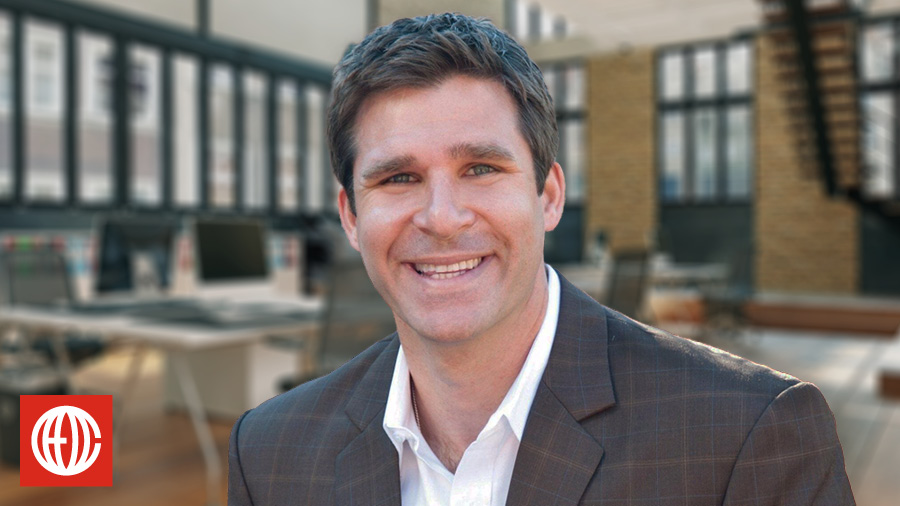
Guest: Chris Stakich, Chief Community Officer at CEO Coaching International. Chris oversees our business forums, in-person events, and communication hubs. Prior to joining the team, Chris was the Chief Experience Officer at YPO where he oversaw 500+ global events, 6,500+ forums, all strategic partnerships, and the member learning strategy.
Quick Background: Learning and leadership growth should always be at the top of a CEO’s list of New Year’s goals. One of the most impactful ways to accelerate that learning is by connecting with other leaders. Business forums can provide a structured and supportive environment to share your experiences, reflect on your challenges, and learn from your peers so that you can elevate your business skills and accelerate your success.
On today’s show, Chris Stakich discusses how CEO Coaching International’s new business forums complement the coaching experience and will help CEOS Make BIG Happen in 2025.
Keys to a Purposeful Forum Experience from Chris Stakich
1. Focus on business challenges.
“The work-life balance myth” has been a popular topic since the pandemic, especially as the duties and responsibilities of “work” itself have drifted away from the office. There’s definitely some appeal to cultivating a “work-life blend,” especially for CEOs who want to instill their companies with a strong sense of purpose beyond pure profit.
But however you want to achieve harmony in everything you do, the most successful executives still establish clear boundaries between work time and personal time. A business forum can be a part of this structured approach to focused professional development.
“I’ve been in a YPO forum for the last 10 years,” Chris says. “I love my forum. But a lot of times those conversations quickly drift into what’s going on in your personal life. At CEO Coaching International, we’re calling ours ‘business forums’ because we’re going to be hyper-focused on what’s going on in the business for the participants of the forum, with a very strong focus on how do we help participants be better in their roles as an executive within that company? What winning looks like for us is, if you’re in a CMO forum and you’re a chief marketing officer, by the end of 2025, you’re twice as good as you were in 2024.”
To maintain that essential focus, CEO Coaching International’s forums will be led by professional facilitators. The year-long program begins with all participants answering three key questions:
- What are the opportunities you face this year?
- What are the challenges you face this year?
- What do you want to learn?
“ We’ll then cross-map the answers to those questions amongst all the participants,” Chris explains, “and come up with 12 meetings throughout the year where we’re really tackling the big categories of topics that people want to dive into. We’re trying to create very high-value meetings for every single forum.”
2. Share experience, not advice.
Unlike an executive coach, forum members don’t live and breathe your specific business. But they do have valuable professional experience that other leaders can treat as case studies and draw applicable lessons from. That’s why “no advice given” is a core rule of our business forums. We want to create an environment where leaders feel free to share what they’ve learned without feeling pressured to step outside of their areas of expertise or fix each other’s companies.
“ You can speak from the heart and you can speak from your experiences, but you’re not really giving advice to one another,” Chris says. “It’s an environment of confidentiality. And so what’s spoken in that room is expected to stay in the room.”
For example, let’s say you’re a CEO who’s wrestling with whether or not you should replace your long-time CFO who doesn’t seem capable of helping you reach the next growth target. No other CEO can — or should — tell you what to do. They don’t know your history with the CFO. They don’t know what effect your CFO has had on your company’s culture. They don’t know how willing that CFO has been in the past to shore up weaknesses, accept training and mentorship, and scale his capabilities along with the company’s.
Chris says, “ What typically is a better format and framework is people in the group saying, ‘You know what, I dealt with a situation like this at the last company I was at, and we had a head of sales that came in and helped us triple in size over a three-year period, and then he wasn’t really a fit, and we either got rid of him or we got him training or we got him coaching or we got a mentorship, this worked or this did not work.’ I’ve found that the magic and beauty of a forum is people sharing their lived experiences. Emotionally how that felt, technically how that happened, how they executed on it, how the rest of the company reacted. And then let individuals draw the conclusions for their own situations. Let them create the wisdom for themselves from the inside out to decide, this is what I think I should do. Because no participant of a forum knows all the variables that person’s dealing with. And so by providing lived experiences, you’re really empowering the person to make a decision for themselves.”
3. Reinforce your learning routine.
A business forum is only going to be as effective as what its participants bring to the table every month. If you’re not making time to read, attend conferences, review your business’ progress, and solicit feedback from employees between your forum meetings, then you’re putting a significant cap on your leadership growth potential.
Leaders also should leave forum meetings with plans to put what they’ve learned into action. And while seeing next month’s meeting on your calendar should provide a layer of accountability, leaders who are working with a coach can integrate forum learnings into their larger routines for planning, executing, reflecting, and Making BIG Happen.
“It’s extremely helpful for the participants of the forum to have the space to have a conversation with a group of peers and like-minded professionals,” Chris says, “to draw conclusions, to come up with ideas. But then they go back to their coach and say, ‘What do you think about this for the business? Let’s really workshop this in a defined way.’ And the coach will be the person giving some advice. That’s where it transfers. The coach with the expertise on the business will say, ‘I think you should do that,’ or, ‘I don’t think you should do that,’ or, ‘Maybe we should think of another pathway.’ I think the business system that CEO Coaching International has developed, and now with the addition of a forum, is genius, and the perfect business system for any given company. It all starts with annual planning and figuring out what are the goals that we have this year? How does that break down into key company initiatives that happen over quarters? How does that break down into small, measurable activities that people are doing on a daily basis? How do you set up all the dashboards to record all this information? So you set up the framework of the business and then you start coaching the CEO, you start coaching the executive team. You really start working with the business. It’s everything. Every business in the world should have this type of approach, in my opinion.”
Top Takeaways From Chris Stakich
1. Learning is an executive-level responsibility that should be part of every CEO’s routine.
2. Draw your own conclusions from what other CEOs have experienced instead of just following someone else’s path.
3. Incorporate key learnings into your company’s meeting rhythms and your coaching objectives.
Links:
Are You a Coachable CEO? – When a CEO says one of these four things, what they’re really saying is, “I am un-coachable and my business is in BIG trouble.”
5 Ways Busy CEOs Maximize Their Time – The best leaders know they can’t do it all. Here’s how to help your team maximize their time (and yours, too).
About CEO Coaching International
CEO Coaching International works with CEOs and their leadership teams to achieve extraordinary results quarter after quarter, year after year. Known globally for its success in coaching growth-focused entrepreneurs to meaningful exits, the firm has coached more than 1,500+ CEOs and entrepreneurs across 100+ industries and 60 countries. Its coaches—former CEOs, presidents, and executives—have led businesses ranging from startups to over $10 billion, driving double-digit sales and profit growth, many culminating in eight, nine, or ten-figure exits.
Companies that have worked with CEO Coaching International for two years or more have achieved an average revenue CAGR of 25.9%, nearly 3X the U.S. average, and an average EBITDA CAGR of 39.2%, more than 4X the national benchmark.
Discover how coaching can transform your leadership journey at ceocoachinginternational.com.
Learn more about executive coaching | Meet our world-class coaches









